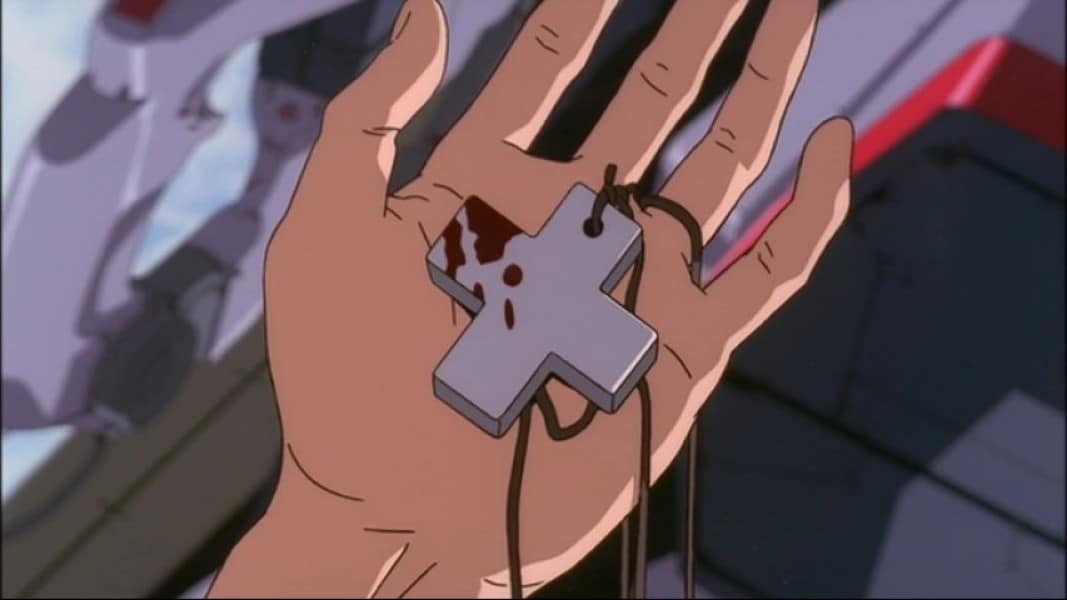Last week, people around the world commemorated the 75th anniversary of the D-Day invasion at Normandy in World War II. The numerous celebrations were a fitting recognition for those men who gave their lives in the pursuit of freedom. We have dealt with those who have served by honoring them as giants, fondly and tearfully remembering those who did not come back.
Next week, Netflix begins streaming Neon Genesis Evangelion, a classic anime series that explores the themes of war and violence, and the psychological toll that it can have on combatants. This series debuts at a fitting time, as we remember D-Day and continue to think about all living veterans marked by the scars of war.
Fans of Neon Genesis Evangelion have been eagerly awaiting its release for years, as the series has had licensing issues since its parent company AD Vision went out of business in 2009. But accessibility to a classic series, while certainly a positive, is not the most important aspect of its release. Rather, its depiction of war and its aftermath is far more relevant and important today.
A quick glance at some series artwork or its opening theme may lead you to believe that the series itself is a typical fantasy/adventure story where a handful of youth control giant robots to help save the world, reminiscent of familiar series like Power Rangers or Voltron.
However, the story has a striking difference in its characters. Shinji Ikari, the series’ teenage protagonist, is extremely reluctant to accept his role as a pilot who is needed to combat the race of monsters that have come to try and destroy the world. Unlike other protagonists, Shinji’s experience does not overly glorify combat. Rather, it shows the effects of battle from his perspective.
His first attempt is disastrous. Shinji attempts to fight off the giant monster (known as an angel) with no training because there is no time. He only agrees to try under pressure from his father, and Shinji panics and becomes overwhelmed very quickly. The robot he is piloting takes control on its own and finishes off the monster. Shinji is not a hero who is in control and confident. He is overwhelmed and panicky, relying on his robot to save the day.
Another one of his early attempts to fight is animated with a disorienting red color palate. As a result, we, the audience, begin to see just how traumatizing combat must be for the young man. When he is asked to return to battle, the stakes continue to escalate.
Shinji does not fight alone as he continues to battle these “angels,” and he becomes more adept and confident on the battlefield. But nonetheless, he still carries with him the trauma from those first solo fights.
Through these experiences, this series allows us to explore the effects of war and the struggles that those who go into battle face on a visceral level. Yes, Shinji is able to win the battles he engages in and can be viewed as a hero for that reason. But he witnesses and experiences unspeakable horrors, only shared by those people who guided him through the battles or fought alongside him. It is a trauma that is born inside of him, which few people can relate to and connect with. How much is this the case for our own soldiers who have gone into armed combat?
By making us experience the situation through the eyes of Shinji, Neon Genesis Evangelion allows its audience to glimpse the psychological horror of war and to be able to have some understanding of its effects. It’s worth remembering that this series aired in the mid 1990s, before we had any lasting cultural understanding of the psychological effects of war on a human being.1 Today PTSD is a familiar acronym, and the stigma around mental health is fading. That wasn’t the case two decades ago when the series debuted.
If for this reason alone, revisiting Neon Genesis Evangelion today becomes helpful and important. In just the first handful of episodes, Shinji provides us with the material to talk about the horrific effects of war and of having to return to battle. Perhaps by reflecting on this series, we will be able to find ways to remember and honor those traumatized by combat, those who came home and were never quite the same.
- This is just one aspect of the series. Other themes that could be explored include the Christian symbolism of the series or the effects of depression. ↩


